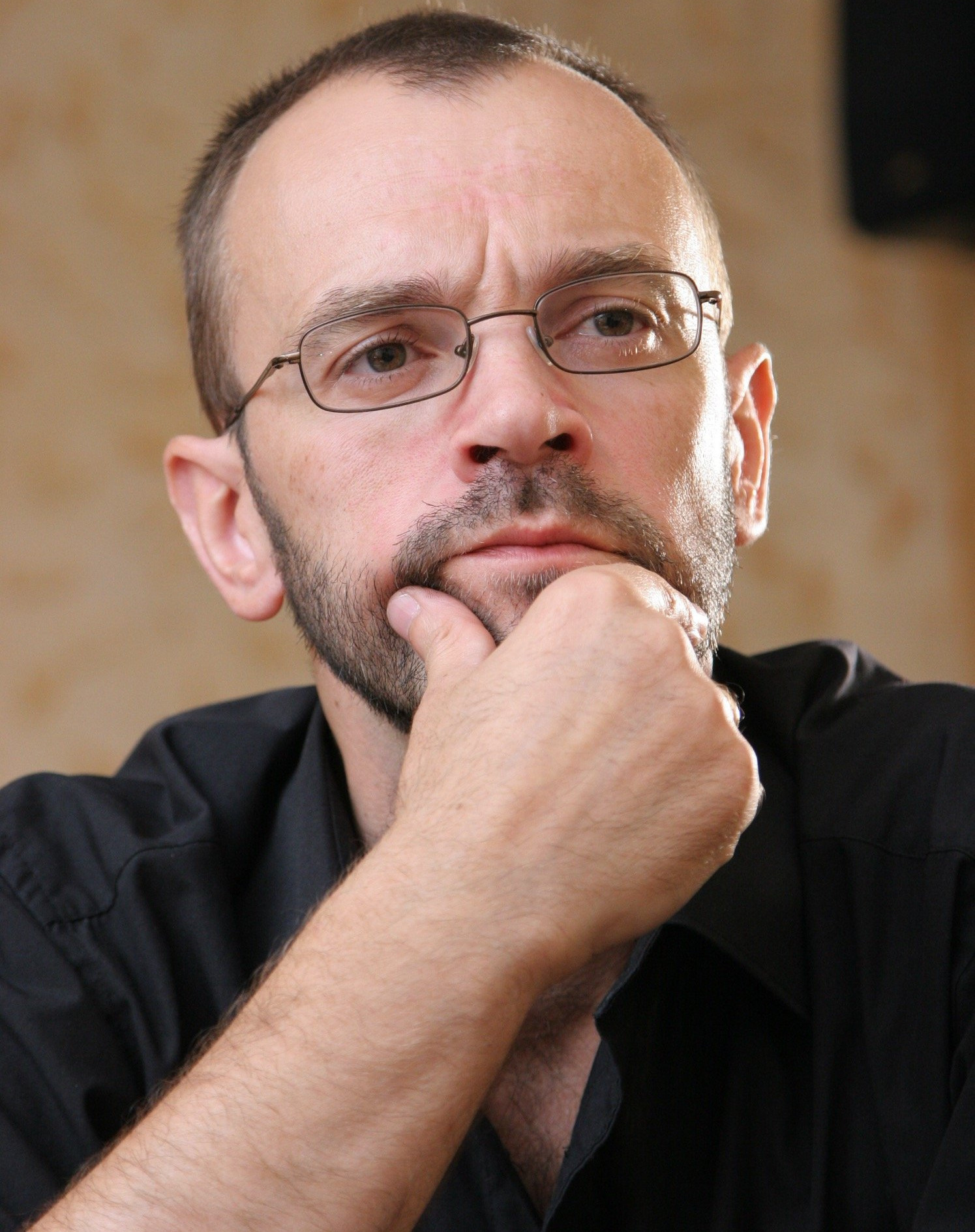
Rihards Dubra
(28.02.1964 )
"Speaking purely philosophically, what is then music’s most important goal? To influence a person through emotions. Arvo Pärt, John Tavener... These men write music in a pure form that interests me the most – pure music, not an attempt to search through many different technical tricks, or there will truly be not a drop of emotion. In that I feel different than some of the newer composers. Just like everyone has their own road to God, every composer has his own road to emotion in music, and through that – also to God."
Rihards Dubra
Rihards Dubra was born on February 28th, 1964 in Riga. He studied music first in Jūrmala, after that at the Emīls Dārziņš College of Music, where his instructors in composition were Jāzeps Lipšāns and Ģederts Ramans. In 1989, he graduated from the Latvian State Conservatory composition class under Ādolfs Skulte (as an elective he learned symphonic conducting under Aleksandrs Viļumanis), and in 1996 earned his master’s degree at the Latvian Academy of Music under Juris Karlsons.
During his studies, he began to teach harmony and composition at the Jūrmala School of Music, where he still works today. His other sphere of work is involved with the organ and liturgy. Rihards Dubra was the organist at the Riga Our Lady of Suffering Church, and, as of 1999, he is the cantor of the Riga St. Mary Magdalene Church.
The most recent works of Rihards Dubra are closely involved with sacred music. All of his works have a spiritual content at their foundation, whether they are vocal or instrumental. The composer has written minimalist, Gregorian, and Renaissance-style music, thinking not just of intonation, exposition, and similar spheres, but firstly the philosophical side. At the same time, the fusion of the means is romantic. His choir works and vocal instrumental compositions are heard at international festivals and concerts. The English public that have heard the composer’s spiritual choir songs in Latvian, have declared them to be Latvian motets.
Dubra received the Latvian Great Music Award in 2003 for his work Te Deum, performed at the XXIII Overall Latvian Song Festival sacred music concert.
Lolita Fūrmane © LMIC
